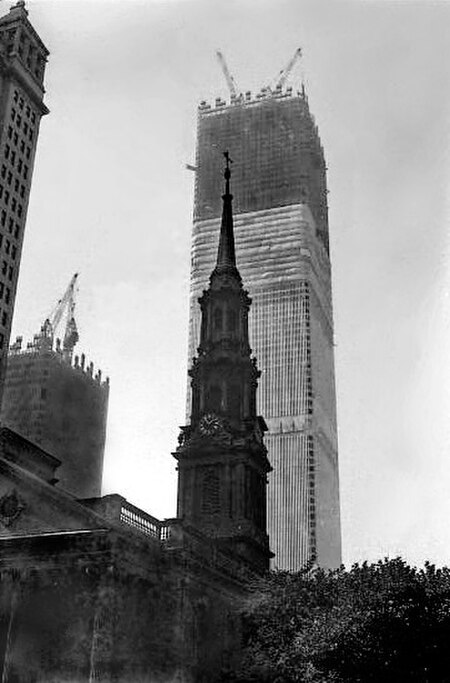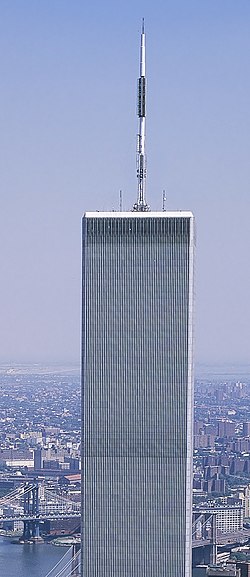Construction of the World Trade Center

The construction of the first World Trade Center complex in New York City was conceived as an urban renewal project to help revitalize Lower Manhattan spearheaded by David Rockefeller. The project was developed by the Port Authority of New York and New Jersey. The idea for the World Trade Center arose after World War II as a way to supplement existing avenues of international commerce in the United States. The World Trade Center was originally planned to be built on the east side of Lower Manhattan, but the New Jersey and New York state governments, which oversee the Port Authority, could not agree on this location. After extensive negotiations, the New Jersey and New York state governments agreed to support the World Trade Center project, which was built at the site of Radio Row in the Lower West Side of Manhattan, New York City. To make the agreement acceptable to New Jersey, the Port Authority agreed to take over the bankrupt Hudson & Manhattan Railroad, which brought commuters from New Jersey to the Lower Manhattan site and, upon the Port Authority's takeover of the railroad, was renamed PATH. The Port Authority hired architect Minoru Yamasaki, who came up with the specific idea for twin towers. The towers were designed as framed tube structures, which provided tenants with open floor plans, uninterrupted by columns or walls. This was accomplished using numerous closely spaced perimeter columns to provide much of the strength to the structure, along with gravity load shared with the core columns. The elevator system, which made use of sky lobbies and a system of express and local elevators, allowed substantial floor space to be freed up for use as office space by making the structural core smaller. The design and construction of the World Trade Center, most centrally its twin towers, involved many other innovative techniques, such as the slurry wall for digging the foundation, and wind tunnel experiments. Construction of the World Trade Center's North Tower began in August 1968, and the South Tower in 1969. Extensive use of prefabricated components helped to speed up the construction process. The first tenants moved into the North Tower in December 1970 and into the South Tower in January 1972. Four other low-level buildings were constructed as part of the World Trade Center in the early 1970s, and the complex was mostly complete by 1973. A seventh building, 7 World Trade Center, was opened in 1987.
Excerpt from the Wikipedia article Construction of the World Trade Center (License: CC BY-SA 3.0, Authors, Images).Construction of the World Trade Center
Greenwich Street, New York Manhattan
Geographical coordinates (GPS) Address Website Nearby Places Show on map
Geographical coordinates (GPS)
| Latitude | Longitude |
|---|---|
| N 40.711666666667 ° | E -74.013611111111 ° |
Address
National September 11 Memorial & Museum (World Trade Center Memorial;9/11 Memorial)
Greenwich Street 180
10007 New York, Manhattan
New York, United States
Open on Google Maps





